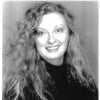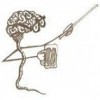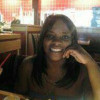Writing
Where to start? Has anyone ever had a goal that they would like to achieve, but don't even know where to begin? I love reading and writing and would be so proud to be able call myself an author one day, but just don't know where to begin. What character names would I pick? What would they look like? What personality traits would make them stand out? What would the subject of the book be? Just where to begin in general. Does anyone know a good book with tips on starting points? Or have any tips?
As with anything complex, make it simple and start with something small? Think of something that happened today, and write about it. A news item that took your attention, maybe. How did you feel about it? Why? How might it affect you? Make it a hub, then you are an author!

Lily - You think you'd love to be an author but maybe you just don't want to put the time in. Wishing and thinking how you'd love to be something is just that. Maybe you're first short story (about 4000 words) could be about a foolish girl who wanted to be a great and famous author. She kept asking people how to do this until she became most annoying to everyone she met. One day, she realized she was very good at asking questions and decided she was a natural born journalist, not an author. There. I've given you an idea. Run with it.
Shadesbreath has given you lot of good advice. If you want to write, then write every day. That was the advice given to me a long, long time ago. Get into the habit. Just express how you feel about anything and everything as an essay. The bigger, longer stuff can come later...and it will...if you write every day.
Check out Release the book within by Jo Parfitt, which I found to be very helpful. If you really want to write, then write. You can start by doing a a daily log of what you do during your day. Write down things that you yourself would like to read if someone else wrote them. If you really want to write then you will. Dont talk about writing, just write
- Website Examinerposted 12 years ago
0
I agree with Wixor about keeping it simple.
Don't intellectualize the process before you have some real creative writing experience. Try arranging practice sessions covering the basics:
- Characters (describe a few characters, for example by using real persons and then make some changes, including behavior that doesn't seem to be making sense as it deviates from the norm. Develop the characters by explaining their motivation, background, aspirations, emotions etc.)
- Setting (describe a town, a beautiful landscape etc.)
- Storyline (a step-by-step, chronological sequence of events; possible to create a separate storyline for each character)
- Plot (Decide how you want your story to end, then create the starting point, and insert some midway points - like: How did the guys end up getting caught inside the bank during the robbery, what went wrong in their planning?)
- Theme (Lists of common themes are available on the Internet)
- Genre (Very helpful when deciding what characters, writing style, and setting to pick for your story).
Practice and research each of these areas, then start writing some short stories before you even contemplate further steps. I have started a few hubs that I had no idea how they would end. The thing just evolved one sentence at a time. One time I wrote myself into a plot corner where there was no way out. But then, 10 minutes later, there was! I'm not necessarily recommending this method. I'm just saying that I have experienced it. And it was fun.
I write poetry and some articles--a couple of short stories--nothing larger yet--but some of my best work just happens--I sit down without a plan and see where my pencil takes me--I think people just need to write-and not worry so much about the process--everyone develops their own process over time
It’s too easy to run down the red-herring road of trying to define what it means to be a “real” author or a “real” writer. That is tired old forum territory, akin to debates about religion or politics, and it leads away from the real issue, which is that, writers write and authors author. Semantic conversations about publication and income being the sort of dead horse for which Internet pedants constantly apply their forum sticks.
Instead, I would venture that the heart of your question, if it is sincere, begins with the fact that you start out calling becoming an author a "goal.” Here I might also suggest that the word "dream” could be substituted as well. The problem with goals and dreams is that if left in that form, as intangible things in our minds, wisps of hope and unrealized fantasy, they never become reality. We have to make them into reality. And, ironically, the first step to doing that is to stop dreaming them and start doing them. If you want to be a 'real writer' then start writing for real.
This does not mean you have to write something as profound as Dostoevsky or Shakespeare. Heck, you don't have to write something that sells like J.K. Rowling or Stephenie Meyer. You just have to write. Real writers write. Every day. The more you write, the more you learn, the better you get. At some point, your work will start to be pleasant to readers too. Not always, but sometimes. To some people. And so it goes. In an ever-widening cycle of effort, discipline and reward, as you seek your writer’s “voice.”
Read. And write. Every day. If you aren't doing that, then you don't really want to write, you just want to dream. Which is fine, but the sooner you recognize the difference, the sooner you can be content.
If you do want to write, then pull back from the abstract of "the goal" and focus on the discipline. Read and write. Read great writers. Sloooooooowwwwwwwwwww way down while you read them. While there are lots of very useful "how to write" books out there, nothing beats studying actual writing as opposed to studying writing that’s written about writing.
That said, if you really want a quick writer’s guide that's very useful, check out any edition of the Gotham Writers Workshop on Writing Fiction. Another good one is John Gardner's, The Art of Fiction. Check one or both of those out, and then go read great writers and see if you can find the tips and techniques mentioned in those "how to" books. Look for them in the time-tested pieces of literature. You'll start to see why those great works have lasted beyond their initial release dates, some for centuries or more. Then go try to pull some of it off. Sure it won’t work. So what. You’re just getting going. But if it matters, and you love it, then, bit by bit, your daily discipline will pay off. You’ll start to FEEL like a writer because you are one as defined by what you DO, not by what someone in a forum told you constitutes authenticity.- mickelarrposted 12 years ago
0
I decided a few years back that I wanted to write a novel. The way I learned was to write. And write. And write. And write. When the little voice in your head tells you that you can't do it, that you're not smart enough, or creative enough, or whatever enough, shut it out and keep writing.
When you're not writing, read. Read the kinds of things you'd like to write. Read about grammar and style and prose and all that good stuff that will eventually come second nature, but for now you'll have to think about.
Like anything worth doing, it's not easy. You'll make a ton of mistakes and learn from them all. Just keep writing and learning your craft. It's really the only way. Sometimes I will write something.but i am not good at writing ,but ,write down waht you are thinking or something you think you should write down, it is good ,a fews days later,when you go back to see it ,you will remember it and it is a nice memory.
- ChuckGposted 12 years ago
0
Start small and build from there. Write a creative story here. Doesn't have to be long, or amazing. Just get those characters out of your head and place them on paper (as it were).
Read books on writing novels, creative stories, whatever you can find. Join writer's forums and ask questions, lots and lots of questions.
Through practice you'll soon write organically and naturally without strain, well, that's the goal.ChuckG has got something there, start small. I believe also, you have to look at the basics; grammar, spelling, continuity. I have read that you shouldn't worry about basics, just let the creative juices flow. I don't agree.
Think about how other art forms, or music would be if you didn't worry about the basics.
Take something small that you have written, and post it. How could it be improved, or corrected. Is your punctuation correct? Emphasis, context?
- Website Examinerposted 12 years ago
0
Lots of good advice has been offered in this thread. One can only guess at this point whether any of it has been useful for Lily Somers.
There are many books out there on this topic you just have to do your research. When i wrote my 1st book I wasted to do a true story and from there it went into different genres.
Related Discussions
- 17
Learning to really write
by LilySomers27 12 years ago
Where to start? Has anyone ever had a goal that they would like to achieve, but don't even know where to begin? I love reading and writing and would be so proud to be able call myself an author one day, but just don't know where to begin. I have actually jotted down character names, where the book...
- 10
Short Story or Novel? Where to Begin?
by Karen 11 years ago
I just read an article on the Mythic Scribes forum that was complaining how many new writers want to jump right in and write an epic novel (this IS a sci-fi/fantasy writer's forum) with no experience... suggesting maybe newbies would be better off sticking to the short story for a few years before...
- 32
What published author has been most influential to your love of writing?
by Terrye Toombs 11 years ago
What published author has been most influential to your love of writing?I have found that Dean Koontz and Terry Brooks have been very influential in both my writing style and my love of writing. After I read one of their books, I find myself more energized to get back to writing. What authors...
- 18
Writers And Aspiring Writers Please Help Me, THANK YOU SO MUCH?
by FelineFrance 13 years ago
Okay, here is my problem I try to learn every freakin' detail about my main character before I start writing. I am very afraid of criticism and allowing others to read my work. I wish there was a way to make myself completely anonymous. Should I seek advice or criticism before I start writing? I...
- 21
Poetry Writing
by seicheprey 12 years ago
Okay, when I get on my kicks I write anywhere from 4 to 10 poems a day, maybe more. This doesn't mean that all of them make the cut, or don't go through some heavy revisions. I'm just interested in other people's production.
- 36
How do I improve my writing
by sin_min 13 years ago
Is their a to go person for editing or reviews of books?


















